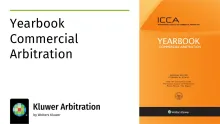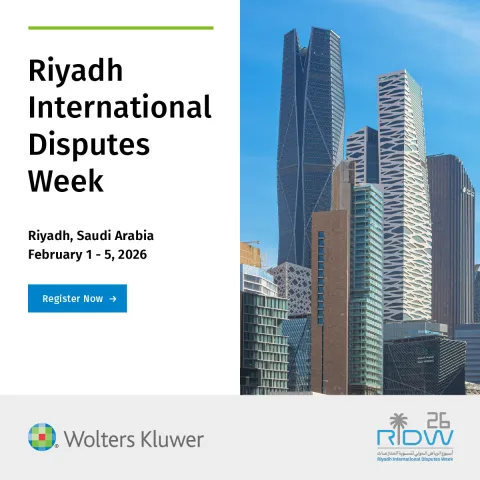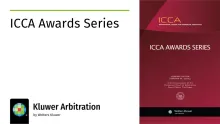AES v. Argentina ICSID Award: Closing the Chapter on Argentina’s 2001-2002 Crisis Saga
September 17, 2025
Introduction
On May 30, 2025, an ICSID Tribunal rendered its award on damages in AES Corporation v. Argentine Republic (ICSID Case No. ARB/02/17). The dispute arose from a series of measures adopted by Argentina in the electricity sector following the 2001-2002 economic crisis, which AES alleged breached the 1991 United States-Argentina bilateral investment treaty (“BIT”). The Tribunal unanimously upheld AES’s claim and ordered Argentina to pay AES USD 715.9 million in compensation, plus costs and interests at the one-year U.S. Treasury Bills rate.
In its reasoning, the Tribunal aligned with earlier ICSID awards in El Paso v. Argentina and EDF v. Argentina related to the 2001-2002 crisis, holding that Argentina’s measures in the electricity sector breached the U.S.-Argentina BIT and that the necessity defense under customary international law could not excuse those violations. This stands in contrast with the position taken in the Orazul v. Argentina award, which found that similar measures were not arbitrary but remained within the State’s regulatory discretion.
The AES award represents one of the final ICSID cases arising out of Argentina’s 2001–2002 crisis, marking a significant milestone in the long series of disputes that resulted from this event.
Background
In the early 1990s, Argentina launched a broad program of macroeconomic and sectoral reforms aimed at stabilizing and liberalizing the economy. In the electricity sector, the reforms unbundled generation, transmission, and distribution, introduced competition, and offered investors cost-reflective tariffs, indexation to the U.S. dollar, and mechanisms intended to ensure stable returns. As part of this strategy to attract foreign investment, between 1990 and 2000, Argentina ratified the ICSID Convention and entered into 58 bilateral investment treaties, including the 1991 United States–Argentina BIT, which entered into force in 1994.
It was in this context that AES—a U.S.-based energy company with global operations—invested in Argentina. Over the course of a decade, AES committed substantial capital and became a major foreign investor in Argentina’s power industry, acquiring stakes in eight generation companies and three distribution companies.
Its portfolio encompassed major hydro and thermal plants, placing it among the leading private players in Argentina’s newly liberalized electricity market.
However, by late 2001, Argentina faced a severe economic and financial crisis: the currency board collapsed, the Argentine peso was devalued, and sovereign debt defaulted. In this context, Argentina adopted a series of emergency measures, including the abolition of dollar-indexation clauses and the suspension of tariff-adjustment mechanisms. In the electricity sector, additional measures capped spot prices, modified capacity payments, and imposed mandatory reinvestment programs, forcing generators to channel revenues into state-directed projects rather than distributing earnings freely.
As a result, dozens of foreign investors filed arbitrations against Argentina after the 2001–2002 crisis. At ICSID alone, over 59 cases were brought, making Argentina the most sued State in the institution’s history—nearly 6% of the total. Most of them are tied to crisis-era emergency measures.
AES argued that these measures, such as the “pesification” and freezing of tariffs in the Mercado Eléctrico Mayorista, the unilateral alteration of tariff-calculation mechanisms, and the imposition of new investment obligations, dismantled the regulatory framework created in the 1990s and undermined the economic viability of its investments. Argentina, instead, argued that the measures were reasonable responses to protect public interests during the crisis. The dispute thus centered on whether Argentina’s emergency legislation and regulatory changes violated its obligations under the BIT.
On November 5, 2002, AES filed its Request for Arbitration before ICSID. On April 26, 2005, the Tribunal issued its decision on jurisdiction, rejecting Argentina’s objections and decided to move forward with the case on the merits and quantum. The proceedings were then suspended by agreement of the parties between January 2006 and December 2019, which explains the unusually long duration of the case.
Main Issues Decided in the Award
Waiver. Argentina argued that AES had consented to the challenged measures and waived any claims under the BIT through a series of agreements with the State. These included commitments by generators to build and operate two thermal power plants, and adherence to the regime established by a governmental resolution that introduced a cost-plus remuneration scheme and restricted generators from entering new long-term power purchase agreements.
The Tribunal rejected the objections, noting that, per Occidental v. Ecuador, waivers must be “clear and unequivocal” as to the identity of the parties and the scope of the claims, which none of the agreements did. The Tribunal highlighted that “[t]he Treaty confers rights upon an investor, i.e., the Claimant; therefore, any potential contractual waiver by AES Argentina would not be a waiver of the rights conferred upon the AES Corporation as an investor under the Treaty.”
Essential Security Interests Defense. Argentina invoked Article IX of the BIT, which precludes State responsibility for measures necessary taken to maintain public order, restore international peace or security, or protect its own essential security interests. It argued that the measures were necessary to protect its essential security interests during the 2001–2002 crisis (i.e., “the continuous supply and access of energy, at affordable prices, in general for the population”). AES countered that Argentina could not rely on this clause if it “had contributed to the emergency situation, either intentionally or by omission” nor once the crisis had ended; adding that “Argentina has failed to explain: i) the temporal scope of the crisis; and ii) the link between the measures and the crisis.”
The Tribunal remarked that “[t]his provision has been the subject of diverse and non-unanimous interpretations in several cases against Argentina under both arbitral and annulment procedures.” Reviewing prior case law, including Continental Casualty v. Argentina and El Paso v. Argentina, the Tribunal noted the broader debate over whether Article XI requires strict necessity or grants broader regulatory discretion. The Tribunal concluded that, although the measures adopted during the crisis to preserve electricity supply could fall within Article XI, most of the challenged measures were adopted after May 2003—a date identified in earlier ICSID decisions as the end of the crisis—and lacked necessity or proportionality required. Furthermore, it held that Article XI sets a high standard, not a convenient escape from treaty obligations, and ultimately rejected this defense.
Fair and Equitable Treatment (FET). Citing Azurix v. Argentina, the Tribunal noted that the FET provision in the BIT could be interpreted as establishing a higher standard than that required by international law, exceeding the customary minimum standard. It clarified, however, that unlike the Energy Charter Treaty or the European Energy Charter, the BIT does not impose a specific obligation on the host State to maintain a stable legal framework or to safeguard investors’ expectations of regulatory immutability. In any case, the Tribunal found that Argentina had not made any specific assurances that would give AES legitimate expectations of an immutable legal framework.
Instead, the Tribunal held that the FET provision in the BIT prohibits arbitrary or unreasonable measures, which consist of “a deliberate repudiation of the goals and objectives of a State policy, a measure based on sole discretion or personal preference rather than on law or facts, or a measure taken for reasons different than those put forward by the decision maker.”
Applying this standard, the Tribunal held that “while the text of the Electricity Law provides a margin of discretion for the Secretariat in the elaboration of rules for dispatch, a uniform tariff for all generators and a competitive market based on prices being set through supply and demand are central concepts that establish the boundaries within which the authority must act,” determining that Argentina violated the FET standard by adopting a series of arbitrary measures.
State of Necessity. Argentina also invoked the customary necessity defense under Article 25 of the ILC Articles on State Responsibility, arguing that the 2001–2002 measures were the only way to protect its essential interests during the crisis.
The Tribunal followed the reasoning in Sempra v. Argentina and El Paso v. Argentina in holding that customary necessity defense sets a very high threshold: there must be grave and imminent peril; the measures adopted must be the only way to safeguard the essential interest; and the State must not have contributed to the situation. While acknowledging the severity of the crisis, the Tribunal rejected this defense by holding that Argentina had contributed to the crisis through its prior policies, and alternative responses could have been considered. The Tribunal remarked that “[t]he purpose of this defense is not to provide a blank check simply for 'difficult' situations which every country may have.”
Costs. In light of AES’s broader success in the arbitration, the Tribunal—by majority—applied the principle of full reparation, and given the complexity of the case, Argentina was ordered to bear the entirety of the arbitration costs (amounting to USD 1.2 million) and to reimburse 80% of AES’s legal fees (excluding those incurred during the suspension of the proceedings), amounting to USD 15.8 million.
Comments
The AES award is part of the closing chapter in the long saga of ICSID arbitrations brought against Argentina arising from the 2001–2002 crisis. Over the past two decades, dozens of investors challenged Argentina’s measures, shaping case law on necessity, non-precluded measures, and the scope of fair and equitable treatment. With this award, one of the most significant waves of investment arbitration in ICSID’s history is coming to its end.
From a legal perspective, the AES case reaffirms the prevailing case law developed by other ICSID tribunals, aligning more closely with decisions such as CMS, Enron, Sempra, El Paso, and Total, which likewise held that the measures adopted by Argentina during the crisis breached its international obligations.
Of the claims filed before ICSID against Argentina in connection with the 2001-2002 crisis, four were decided in favor of Argentina and 19 against it, with the remainder resolved through settlements or discontinued proceedings. Moreover, in all of these adverse awards, Argentina has sought annulment, succeeding only once in full (Sempra v. Argentina, in which the Annulment Committee considered applicable the non-precluded-measures defense) and twice partially (CMS v. Argentina and Enron v. Argentina).
*The views and comments expressed in this article are those of the authors and do not necessarily reflect the views or positions of the law firm or any entities they represent.
You may also like










